- Home
- Tanya Huff
Sing the Four Quarters Page 2
Sing the Four Quarters Read online
Page 2
She grabbed for it but not in time.
“Kigh?” Jon asked, retying the curtains.
“Kigh,” Annice repeated, pulling her dripping wool back on board.
“You usually have this much trouble with air?”
“It’s usually my best Song. I can’t understand why they’re being such a pain lately.”
“I’ve heard,” Jon said as he smoothed his ruffled beard, “that across the border in Cemandia there’re those that say the kigh aren’t in the Circle at all. And there’re some people even here in Shkoder that say the bards should have nothing to do with the kigh.”
Annice snorted. “Have these people got a way to convince the kigh to have nothing to do with bards?” There’d been enough lanolin in the wool to prevent much water from being absorbed, but it was still too wet to use. “Because if they do, I’d love to hear it.”
Jon spread his hands. “Just repeating what I heard.”
“Sorry.” Annice felt herself flush. She’d had no call to snap at the merchant, especially not when he was passing on exactly the kind of things that bards were expected to listen for. As the crown’s conduit to the people, it could be vitally important that they hear what some people say. “They weren’t saying it when I was in Vidor …” She let the end of the sentence trail off; not quite a question but definitely an invitation to talk.
“I’m not actually in Vidor much,” Jon admitted. “I spend the late spring and summer collecting fleece from the small holders in Ohrid and Sibiu—mountain fleece can toss lowland fleece right out of the Circle as far as I’m concerned.”
“You do the traveling yourself?” While she wanted to know, it was more interesting to learn that Cemandian ideas seemed to have crossed into at least two of the mountain principalities.
He laughed. “I don’t trade for anything I can’t touch and I probably travel as much as you do. My family lives in Marienka, at the head of the lake. We weave for the local trade, but every fall I bring our extra fleece to the Weavers’ Guild in Vidor, pick up the fabric from last year’s extra, minus their percentage …”
Annice made a mental note to have the Guild’s percentage checked into. While traders traditionally complained about the percentages they had to pay in order to deal with the larger guilds, the Council had asked that bards keep an eye out for price gouging.
“… and then I continue—usually a little farther from freeze-up—downriver to Elbasan.”
Merchants said that in Elbasan they could trade for the world. As a child, Annice had loved to be taken to the harbor to watch ships unload strange and exotic goods. While the captains had entertained one or another of her older siblings, she’d run about the docks poking her nose into odd corners and driving her nurse to distraction. As an adult, she often thought about petitioning for what the bards called a Walk on Water but had never gone so far as to actually make the request.
Warming to his subject, Jon leaned forward and began sketching trade possibilities in the air. Annice, not really interested in the cycle of wool cloth for exotica for linen back in Vidor, slid into the light trance that would ensure memory as he expanded on his season. She had no idea if the information would ever be of use, but under the bardic adage, wasted knowledge is wasted lives, better to have it than not.
“… and if that trader from Cemandia’s still up in Ohrid, I might be able to unload some on him.”
That roused her. She’d run into a pair of Cemandian traders in Ohrid and another in Adjud. She’d even seen a small cluster of them in the market in Vidor. In fact, she’d seen more on this latest Walk than she had in all her previous travels combined.
Jon laughed when she mentioned it. “There’s always been some trade across the border. Ohrid’s never quite managed to close the pass.” Then he was off again on an unlikely tale of how he’d bested a Cemandian in an impossible deal.
Annice slid back into trance; all Jon seemed to need was an audience and she was more than willing to oblige. Few people realized that bards spent half their training time learning to listen. And half of that, Annice mused as the story slid from unlikely to improbable, learning to sleep with our eyes open.
* * * *
“All right, Bard. This is where you float yer weight.” Sarlo hooked the sweep oar into one armpit and gestured ahead with her free hand. “Got a whole stretch of river here where the current spreads out and ain’t worth shit. Not to mention wind’s comin’ northwest and’ll keep tryin’ to blow us onto the far shore. We get through it slow and sure as a rule, but since I don’t want to end up with my butt caught in ice, it’s all yers.”
Fingers clamped not quite white around the oar support, Annice peered off the stern. The fantail following the riverboat was a deep gray-green; not exactly friendly-looking water. Watching the bubbles slipping away upstream induced a sudden wave of vertigo. Annice swallowed hard and sat down, legs crossed for maximum support and eyes closed. Thanks to the innkeeper’s well-timed hunk of bread, she’d discovered that small, bland meals at frequent intervals both remained down and damped the nausea to merely an unpleasant background sensation. Unfortunately, during the two days on the river, she’d found all sort of new ways to make herself sick.
“You okay?”
Annice opened her eyes and decided she could cope. “I’m fine.”
“You seen a healer yet?”
“I’ll see one after I get to Elbasan.”
Sarlo snorted. “Yer business.”
Reaching under her jacket and sweater, Annice pulled out her flute, the ironwood warmed almost to body temperature. When the kigh arrived she’d Sing, but first she had to get their attention.
“They’re gonna be deep with freeze-up so close,” Sarlo observed.
Annice ignored her, setting her fingers and checking the movement of the single key. She took a deep breath and slowly released it, then lifted the flute to her mouth.
The kigh took their time responding to the call, but eventually three distinct shapes became visible just below the surface.
Three would have to be enough.
Shoving chilled fingers and flute between her legs, Annice Sang. Some bards argued that as long as the music was right and the desire strong, words were unimportant; that the kigh didn’t understand the words anyway, so why tie rhyme and rhythm into knots in what was probably an unnecessary attempt to Sing a specific request. Personally, Annice preferred to repeat variations of short phrases over and over. It occasionally got tedious, but it usually got results.
The kigh listened for a few moments, one lifting a swell two feet into the air the better to stare intently at the source of the Song, then suddenly all three dove and the boat jerked forward.
“Whoa!” Sarlo took a steadying step and braced herself against the sweep as Annice let the Song fade to silence. “This’ll make us some time. How long do you figger they’ll push for?”
Annice slumped forward. “Hard to say,” she admitted. “I haven’t actually asked for much, so we might make it out of the slow stretch before they get bored.”
“Then what?”
“Then I’ll play them a gratitude and we’re back on our own.”
“They won’t hang around and cause trouble?”
“Probably not.…” A sudden gust of wind lifted the top off a wave and flung it up over the high stern deck of the riverboat and into Annice’s face. The air kigh flicked the last few drops off its fingers at her, then sped away.
“More kigh?” Sarlo asked.
“More kigh,” Annice sighed and pulled the sleeve of her sweater down to wipe at the freezing water. “I’ve always been strongest in air, so they get jealous when I Sing the others.”
“Sort of like being followed around by a bunch of obnoxious kids.”
“Worse.”
The pilot snorted. “You were never stuck on a riverboat with my right-out-of-the-Circle three.”
“Why didn’t you leave them with their father?”
“Couldn’t. He was my crew till he got knocked off and drowned.”
“I’m sorry.”
“Why? You weren’t the one what pushed him in.”
Annice didn’t care how unbardlike it was; she wasn’t going to ask, she didn’t want to know.
* * * *
They were a day out of Riverton, buildings frequently visible on shore through the slanting rain, when Jon cast off a completed sock and said, “I figured out who you remind me of.”
Annice felt her shoulders stiffen.
“I was watching you last night at the inn, while you sang in the common room,” he continued. “Firelight was flickering on your profile, turning it kind of goldlike, and it suddenly hit me.” He reached under his clothes and pulled out a coin.
In spite of herself, Annice leaned over and looked. Most of the sharp definition had worn away over the years, but it was still easy to see that the profile of the last king, not the current one, lay cradled in his palm. He would have a Mikus not a Theron, she sighed. The gold coins were struck only once, at the beginning of a reign and named for the likeness of the king they bore.
Jon tucked the old coin safely away. “You look like your father.”
“Only from that side.”
“My youngest brother knows all twenty-seven verses to ‘The Princess-Bard’ and still sings it.”
The only response she could think of was too rude to say, so she clamped her teeth shut.
“Not a lot of songs stay popular for ten years, but this one’s got a real catchy tune.” He started to hum but abruptly broke off when he caught sight of her expression. “I, uh, I guess you’re tired of hearing it.”
“You might say that. Yes.”
“Sorry. It’s just—well, the Princess-Bard crammed in right here beside me.”
“It’s the same person who was crammed in beside you yesterday.”
“But yesterday, I didn’t know you were the Princess-Bard.”
If he said it again, she was going to slug him.
“Do you ever miss it? Being royal?”
“No. Never.”
And because she’d been trained to use her voice, he believed the lie. Annice had been fourteen when she left the palace for the Bardic Hall in Elbasan and while she never regretted the decision, she did occasionally wish that some things could’ve been different.
Given the chance to live it over, would she make the same choice?”
Yes.
* * * *
“King Mikus is near death.”
The whisper had scurried around the palace for days. The king had been dying for months, but this new phrasing had finally gained enough conviction to be repeated as a certainty in the city. Goldsmiths who had the royal charter were making ready to cast the new coins. Bards were working on eulogies while criers memorized the highlights of the old king’s rule. Priests prayed for the dying man’s peace. The more pragmatic visited Centers to pray for a peaceful transition of power.
Deep in the palace, King Mikus’ family gathered about him. Neither Prince Rihard, now joined to the Heir Apparent of Petrokia, nor Princess Irenka, now, by joining, Lady of the Havakeen Empire, could be present, but enough remained to pack the small bedchamber uncomfortably full.
Tucked back against the wall, Annice watched her relatives and waited, more or less patiently, for her chance.
Prince Theron, as Heir, stood close by the pillows on the right of the bed. His wife, heavy with their third child, sat in a padded chair by his side. The king had taken leave of his two older grandchildren earlier, in private, but tradition insisted that both Heir and Heir’s Consort remain until the end. Theron had attempted to have his wife excused because of her advanced pregnancy, but Lilyana had sternly told him not to be an idiot and had her favorite chair carried in from her solar. As a political joining it hadn’t been without its difficulties, but over the years they’d developed a relationship that appeared to work although Annice had never understood quite how.
Her sister, the Princess Milena, seemed to lean on the Duc of Marienka’s bulk. Joined for only a year, a joining deliberately arranged to tie his lands more tightly to the crown, they were disgustingly happy. Each made it obvious they considered the other the center of the Circle. Annice figured they were making the best of a bad situation and left it at that.
Prince Tomelis, the king’s youngest and only surviving brother, stood quietly, arms folded, his partner, Lukas i’Johanka a silent strength by his side as he had been for the last thirty years. Now that Rihard was gone and Milena had lost her mind and Theron had gotten so difficult, Annice considered Uncle Tomelis to be her favorite relative. Not only because he’d refused an advantageous political joining with a prince of the Empire and followed his heart, but also because she’d heard him say that he’d rather have his teeth pulled than spend more time than necessary trapped within the walls of the palace. It was a sentiment with which she heartily agreed.
Her Aunt Giti, the Princess Gituska, supported by both her son and daughter, sniveled into a lace-edged handkerchief. Annice had no use for those particular cousins, the only ones who remained in the Elbasan area. Two years ago at a First Quarter Festival, she’d got stinking drunk and embarrassed the family by having to be carried home and he’d thought the whole thing was funny. Her aunt’s grief, Annice would allow, however, was genuine.
The king’s personal healer stood opposite the Heir at the head of the bed, arms folded, hands tucked into her sleeves, her face struggling to come to terms with the knowledge there was nothing more she could do. Two members of the Governing Council watched from the foot of the bed and the current Captain of the Bardic Hall in Elbasan waited about halfway up the left side beside the droning priest—positions all demanded by the ceremony accompanying the passing of a king. A fire of wood soaked in aromatic oils blazed on the hearth. A low table held a basin of water and one of earth.
And as long as we’re breathing, we can’t keep air out. Annice tried not to fidget. Why don’t they get on with it?
One after another, the king’s family approached the bed for the formal farewell; first the cousins—A nonrepresentative sample at best, Annice snorted silently—then the aunt, then the uncle and his partner. As youngest child, Annice should’ve gone next, but somehow Milena and the duc ended up by the bed.
Annice was proud of the subtle manipulation she’d performed in order to move her sister up a place in line—a bit of shy hanging back combined with a silent plea to the sister for rescue—until she caught the Bardic Captain watching her. Flushing slightly, she quickly schooled her features.
Finally, it was her turn.
The growth just under the edge of her father’s ribs had been killing him slowly for the last two quarters. Here, at the end, he was a physical caricature of himself, flesh long melted away, skin hanging loose on the bone, gray hair dull and brittle. Only his eyes remained unchanged even sunk as they were deep below saffron-tinted cheeks.
Annice dropped gracefully to one knee, took a deep breath, and caught up the limp hand lying against the embroidered coverlet in both of hers. “Most gracious and regal Majesty, I request a boon.”
The corners of his mouth twitched slightly. “Go on.”
“I do request that rather than be promised to the Heir of Cemandia, to be joined for political expedience when we are of an age, I be permitted to enter the Bardic Hall of Elbasan.”
Within her grip his fingers moved. “Who promises you to Cemandia’s Heir?”
“Theron.”
The old king’s eyes blazed. “Theron,” he said in a stronger voice than any had heard from him in days, “does not rule yet.”
Theron leaned forward. “Lord Juraj, the ambassador, only spoke of it, Majesty.”
“Yet neither you nor he saw fit to speak with the king.”
“We did not wish to tire you over mere speculation.”
“You passed this speculation to your sister.”
“Only to see if she would be willing.”
The dying man jerked out a dry laugh. “Obviously, she is not.”
Go ahead, Annice thought, tell him that I never told you I didn’t want to go along with your premature little power play and I’ll call you a liar to your face. Go ahead, Your Royal Highness, Heir of Shkoder, I dare you.
She could feel the heat of Theron’s glare, but all he said was, “I would not force her.”
“You cannot force her.” The king paused, fighting for breath, but Annice could feel the pressure of his fingers against hers and knew he wasn’t finished. After a moment, he turned his head toward the Bardic Captain. “You have been after her for some time.”
It had been an open secret in the palace for very nearly a year. Annice had no idea why her father hadn’t agreed and realized she was attempting to force his hand as much as her brother’s.
“Her Highness has both talent and skill,” the captain allowed diplomatically. “If you give your permission and she is willing to take the oath, the Hall will accept her for training.”
“Did you know of this … boon?”
Captain Liene’s eyes never left the king’s face. “No, Majesty. I did not.”
“Very well.” The king lay quietly for another moment. When he spoke again, his voice held the ringing tone of proclamation. “I, Mikus, King of Shkoder, High Captain of the Broken Islands, Lord over the Mountain Principalities of Sibiu, Ohrid, Ajud, Bicaz, and Somes, do on this day grant the boon of my youngest daughter that she should be permitted to enter the Bardic Hall of Elbasan. Witness?”
As the only bard present, the captain nodded. “I so witness.”
Annice released a breath she couldn’t remember holding. “Thank you, Majesty.” Then she stood to take a formal farewell of her king. Her father.
After the words, which were words only, as her lips pressed a kiss against his cheek, he whispered, “Well played.”
-->

 Child of the Grove
Child of the Grove Blood Lines
Blood Lines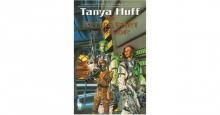 What Manner of Man
What Manner of Man Blood Pact
Blood Pact Blood Debt
Blood Debt The Wild Ways
The Wild Ways Blood Trail
Blood Trail Blood Shot
Blood Shot Wizard of the Grove
Wizard of the Grove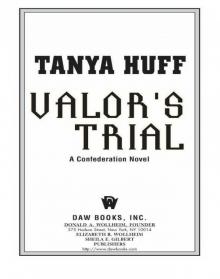 Valor's Trial
Valor's Trial The Privilege of Peace
The Privilege of Peace A Peace Divided
A Peace Divided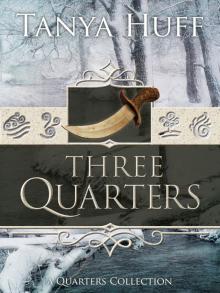 Three Quarters
Three Quarters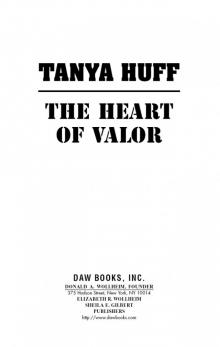 The Heart of Valor
The Heart of Valor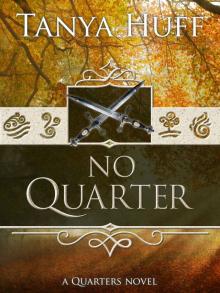 No Quarter
No Quarter The Demon's Den and Other Tales of Valdemar
The Demon's Den and Other Tales of Valdemar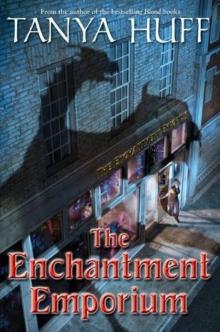 Enchantment Emporium
Enchantment Emporium 3 Blood Lines
3 Blood Lines The Heart of Valour
The Heart of Valour Smoke and Ashes
Smoke and Ashes 2 Blood Trail
2 Blood Trail 1 Blood Price
1 Blood Price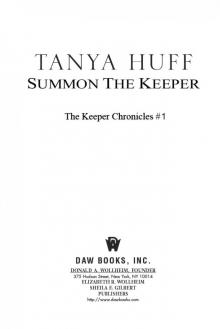 Summon the Keeper
Summon the Keeper The Future Falls
The Future Falls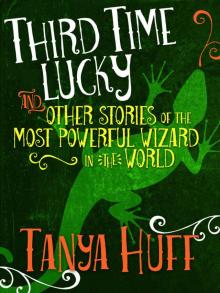 Third Time Lucky: And Other Stories of the Most Powerful Wizard in the World
Third Time Lucky: And Other Stories of the Most Powerful Wizard in the World The Second Summoning
The Second Summoning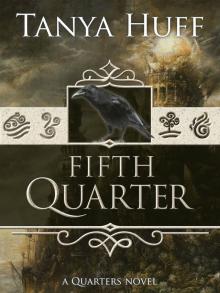 Fifth Quarter
Fifth Quarter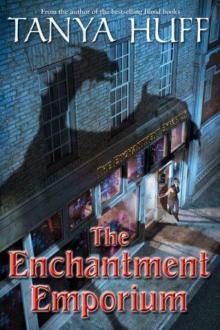 The Enchantment Emporium
The Enchantment Emporium An Ancient Peace
An Ancient Peace Blood Bank
Blood Bank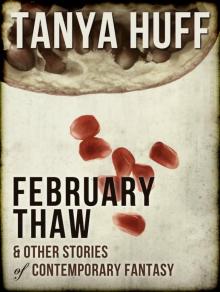 February Thaw
February Thaw The Better Part of Valour
The Better Part of Valour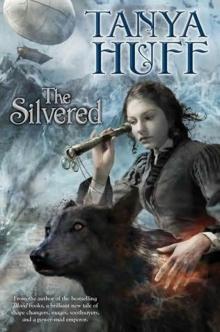 The Silvered
The Silvered Valour's Choice
Valour's Choice Smoke and Shadows
Smoke and Shadows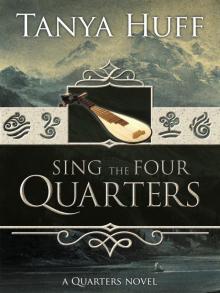 Sing the Four Quarters
Sing the Four Quarters 4 Blood Pact
4 Blood Pact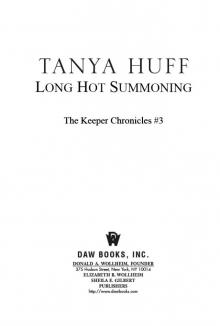 Long Hot Summoning
Long Hot Summoning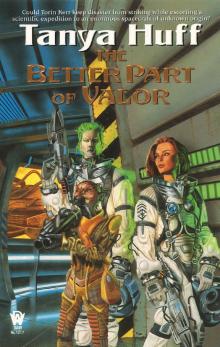 The Better Part of Valor
The Better Part of Valor Scholar of Decay
Scholar of Decay He Said, Sidhe Said
He Said, Sidhe Said Wild Ways
Wild Ways Gate of Darkness, Circle of Light
Gate of Darkness, Circle of Light Valor's Choice
Valor's Choice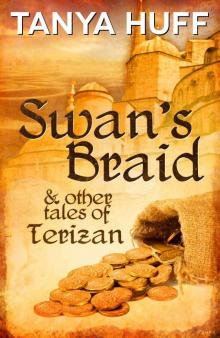 Swan's Braid and Other Tales of Terizan
Swan's Braid and Other Tales of Terizan